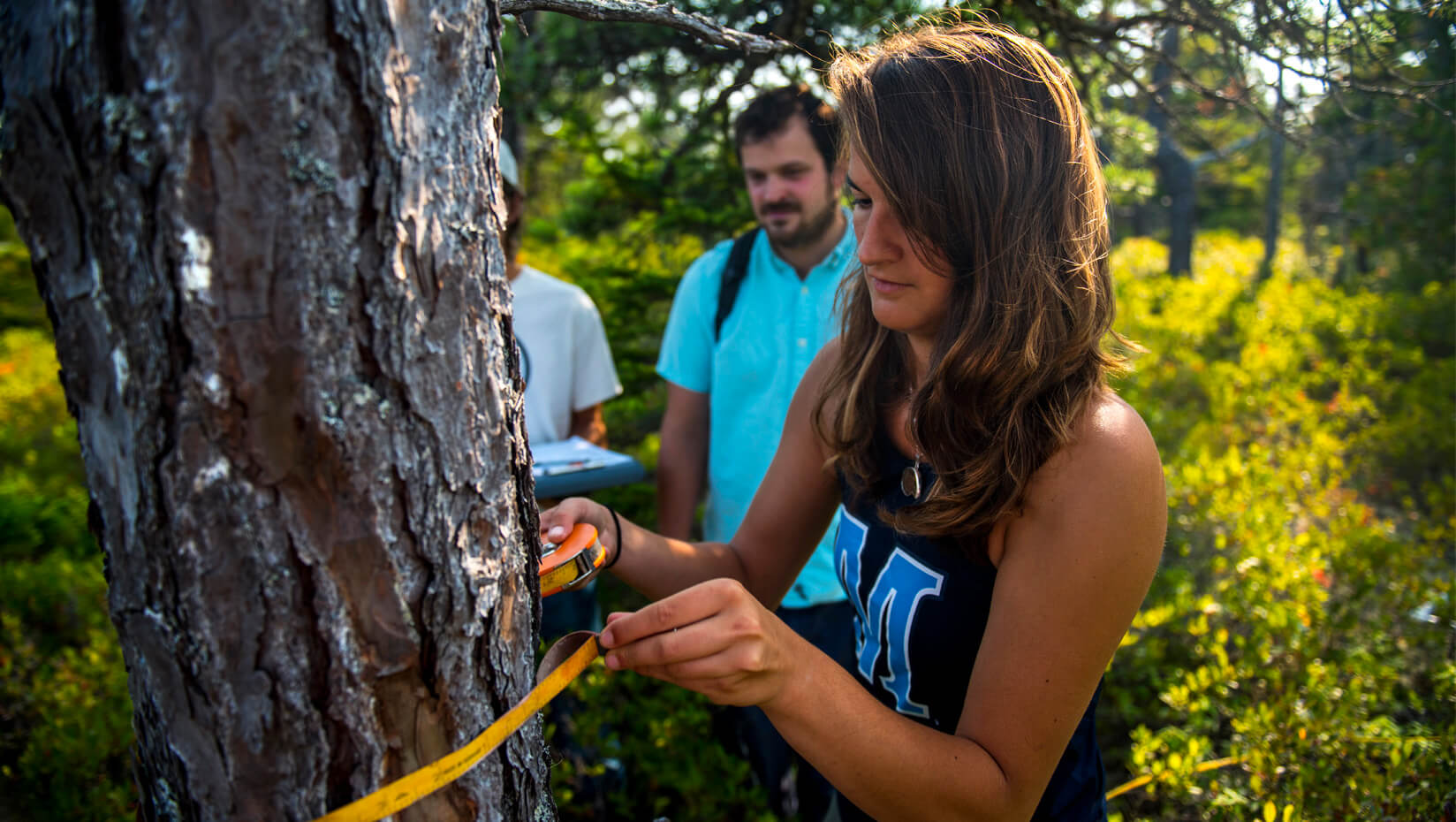Undergraduate students spend summer at Schoodic in interdisciplinary ecosystems research
Two University of Maine undergraduate researchers spent this past summer on the Schoodic Peninsula working on a project to understand the benefits an ecosystem provides to people.
Aly East and Joe Cicero were members of the research team led by Kate Ruskin, a lecturer and undergraduate coordinator in the Ecology and Environmental Sciences Program at UMaine, and Aaron Strong, assistant professor in the School of Marine Sciences. The Schoodic Ecological Services Project focused on assessing the value of Schoodic District of Acadia National Park habitats to humans. It also included a comparison of the ecosystem services today and those prior to the establishment of Schoodic Woods Campground on the peninsula in 2015.

Also collaborating on the project are UMaine researcher Sandra de Urioste-Stone, and Nicholas Fisichelli from the Schoodic Institute, along with others from the National Parks Service and the University of Maine at Machias.
“The key motivator for this study is to try to understand what the effects of new recreational development are in coastal Maine,” says Strong.
The yearlong project, running from May 2017 to April 2018, will help people understand how ecosystem services work in relation to land management and other human-environment interactions, Strong says. It also examines the impacts of the campground on the local economy and opportunities for outdoor recreation, and considers the balance and trade-offs between increasing recreational value of the area and protecting habitats.
In their work, East and Cicero surveyed birds and vegetation, as well as visitors to the park.
“One of the big things that has come out of this summer for me has been learning that with research, it kind of takes an army to get a single result,” says East, a second-year environmental science and ecology major with a minor in climate sciences. “It was a very ‘real-world’ job — an amazing opportunity to have.”
Cicero, a senior in zoology, had prior fieldwork experience. He says this project “further cemented [his] interest in research and natural sciences” while making a contribution to the future of the region.
Ruskin predicts that the project will show an increase in the value of some ecosystem services, such as tourism, while others such as carbon storage will decline as trees were removed to accommodate further development.
“I think that humans are affecting all aspects of the environment, and we’re reliant upon all aspects of the environment, and so we’re trying to look at the whole picture here,” says Ruskin, whose research focuses on biodiversity.
The research by East and Cicero was funded by a grant from the University of Maine System Research Reinvestment Fund, enabling undergraduates to work with faculty on research benefitting businesses and industries critical to the Maine economy. The team is seeking additional funding to extend the project.
“I think it’s a testament to the fact that the University of Maine values holistic and interdisciplinary work for students, and giving its undergraduate students research opportunities to go out there and do on-the-ground real work that’s important to the state of Maine,” Strong says.
The project now has been integrated with a 200-level ecology and environmental sciences weekend field course. This fall, 20 students were led by the members of the Schoodic Ecosystem Services team. The data they collected also will contribute to the research project.
